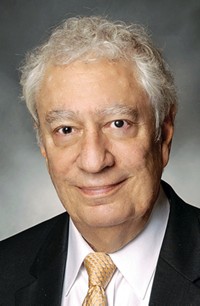Advertisement
Grab your lab coat. Let's get started
Welcome!
Welcome!
Create an account below to get 6 C&EN articles per month, receive newsletters and more - all free.
It seems this is your first time logging in online. Please enter the following information to continue.
As an ACS member you automatically get access to this site. All we need is few more details to create your reading experience.
Not you? Sign in with a different account.
Not you? Sign in with a different account.
ERROR 1
ERROR 1
ERROR 2
ERROR 2
ERROR 2
ERROR 2
ERROR 2
Password and Confirm password must match.
If you have an ACS member number, please enter it here so we can link this account to your membership. (optional)
ERROR 2
ACS values your privacy. By submitting your information, you are gaining access to C&EN and subscribing to our weekly newsletter. We use the information you provide to make your reading experience better, and we will never sell your data to third party members.
Careers
Council Preview
Candidate selections and petitions are on the agenda for the spring ACS national meeting in Dallas
by Susan J. Ainsworth
March 3, 2014
| A version of this story appeared in
Volume 92, Issue 9
When the American Chemical Society Council meets later this month during the ACS national meeting in Dallas, it will select candidates for national office and vote on a change to society dues. It will also vote on petitions to form two new ACS international chemical sciences chapters and for one local section’s new territory. In addition, councilors will brainstorm ways the society can help improve the quality of science education in secondary schools.
Access the agenda for the March 19 council meeting at http://www.acs.org/councilors.
The Committee on Nominations & Elections (N&E) laid the groundwork for the council last fall when it prepared a slate of nominees for the office of ACS president-elect for 2015. The four nominees are Peter K. Dorhout, dean of arts and sciences and professor of chemistry, Kansas State University, Manhattan; William A. Lester Jr., professor of the graduate school in the chemistry department at the University of California, Berkeley, and senior faculty scientist, Lawrence Berkeley National Laboratory; Christopher K. Ober, Francis Norwood Bard Professor of Materials Engineering, Cornell University; and Henry F. Schaefer III, Graham Perdue Professor of Chemistry and director of the Center for Computational Chemistry at the University of Georgia, Athens, and professor of chemistry emeritus, UC Berkeley.
A “President-Elect Nominee Town Hall Meeting” will be held in Dallas at the Sheraton Dallas Hotel in Dallas Ballroom B on Sunday, March 16, from 4:45 to 5:45 PM. Nominees, councilors, and other ACS members can interact at this event via a moderated question-and-answer format. During the council meeting on the following Wednesday, councilors will select two of the nominees to run this fall as official candidates for 2015 president-elect.
Last fall, N&E also prepared slates of nominees for the position of director in Districts III and VI for the 2015–17 term. Earlier this year, councilors in the two districts chose candidates among those nominees. The selected candidates, who will be named during the council meeting in Dallas, will stand for election in the fall.
Nominees who agreed to run for District III director are Dee Ann Casteel, associate dean of the faculty, College of Arts & Sciences, Bucknell University; incumbent Pat N. Confalone, consultant at Confalone Consulting, Wilmington, Del.; Anne S. DeMasi, hazard communication manager at Chemtura, Philadelphia; and Kathryn E. Uhrich, professor, department of chemistry and chemical biology, Rutgers University.
Nominees who agreed to run for director of District VI are Allison A. Campbell, director of the Environmental Molecular Sciences Laboratory, Pacific Northwest National Laboratory; Paul W. Jagodzinski, dean of the College of Engineering, Forestry & Natural Sciences, Northern Arizona University, Flagstaff; Lee H. Latimer, principal, LHLatimer Consulting, Oakland, Calif.; and Eleanor D. Siebert, professor of chemistry and chair, department of physical sciences and mathematics, Mount St. Mary’s College, Los Angeles.
Candidates who agreed to run for director-at-large, a group from which councilors will elect two directors this fall for the 2015–17 term, are Dawn A. Brooks, adviser, diabetes clinical development, Eli Lilly & Co., Indianapolis; incumbent William F. Carroll Jr., vice president, Occidental Chemical, Dallas; incumbent Barbara A. Sawrey, dean of undergraduate education, associate vice chancellor of academic affairs, and distinguished teaching professor in the department of chemistry and biochemistry, UC San Diego; Ellen B. Stechel, deputy director, LightWorks, professor of practice, department of chemistry and biochemistry, Arizona State University, Tempe, and senior sustainability scientist, Global Institute of Sustainability, Tempe.
The council will vote on two “Petitions to Charter International Chemical Sciences Chapters,” which would allow for the establishment of ACS chapters in Malaysia and South Korea.
In addition, the Committee on Local Section Activities (LSAC) is asking council to approve a “Petition for Change in Section Territory.” It would enable the North Jersey Section of ACS to expand its territory to include the area of the former Monmouth County Section, which was dissolved at the end of 2013 because of inactivity.
The council will engage in a special discussion of the question, “What can ACS do to increase the quality of science education in grades 7–12?” This discussion relates to Goal Three of the ACS Strategic Plan: “Foster the development of the most innovative, relevant, and effective chemistry education in the world.” The conversation may touch on why performance of U.S. students on international assessments lags that of many other industrialized nations, despite a national focus on science, technology, engineering, and mathematics (STEM) education. It may also involve discussion of the availability of qualified STEM educators who can prepare and inspire the next generation of citizens and scientists.
In Dallas, the Committee on Committees expects to seek council approval to continue the Committees on Chemical Safety, Chemistry & Public Affairs, and Minority Affairs.
The Committee on Divisional Activities (DAC) will ask the council to approve changes in the way that ACS distributes funds to the divisions, beginning in 2015. One proposed change involves slightly increasing the percentage of total funding that is designated as the base allotment for divisions. To make up for that change, the percentage of funds allocated to divisions for their national meeting programming would be reduced slightly.
Through these changes, DAC aims to provide smaller divisions (those with fewer than 2,000 members) with a modest increase in funds to enhance their opportunity for success. DAC estimates that the larger divisions (those with more than 3,500 members) will lose no more than 2.5% of their funding as a result of these changes, on the basis of the most recent actual allocations.
Other business before the council includes approval of a $4.00 increase in ACS dues to $158 for 2015.
The ACS Council meeting will be held on Wednesday, March 19, at the Sheraton Dallas Hotel in Dallas Ballroom A–C. All ACS members are encouraged to attend the meeting, which will start at 8 AM.
Access the agenda for the March 19 council meeting at http://www.acs.org/councilors.




Join the conversation
Contact the reporter
Submit a Letter to the Editor for publication
Engage with us on Twitter